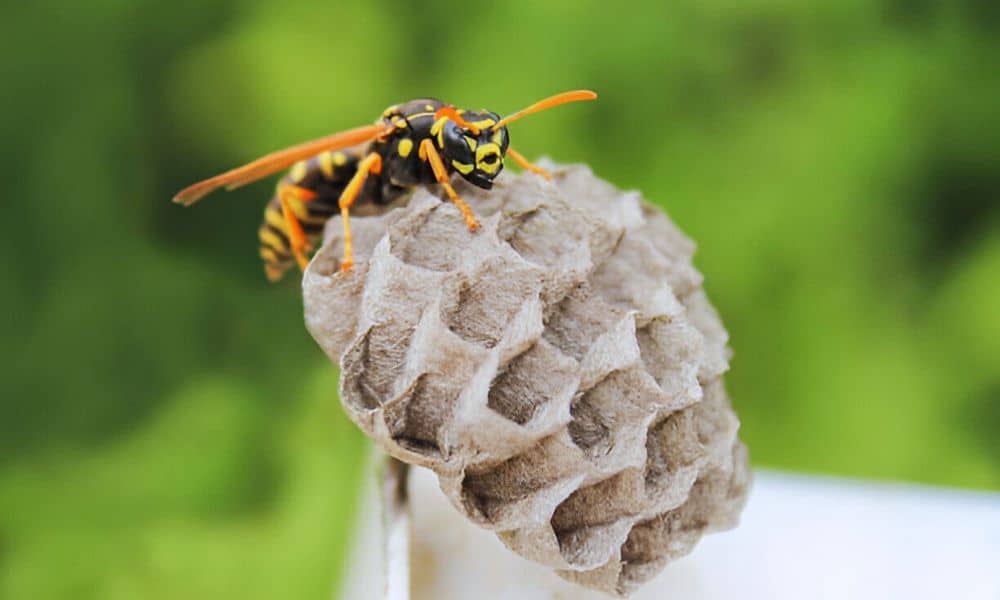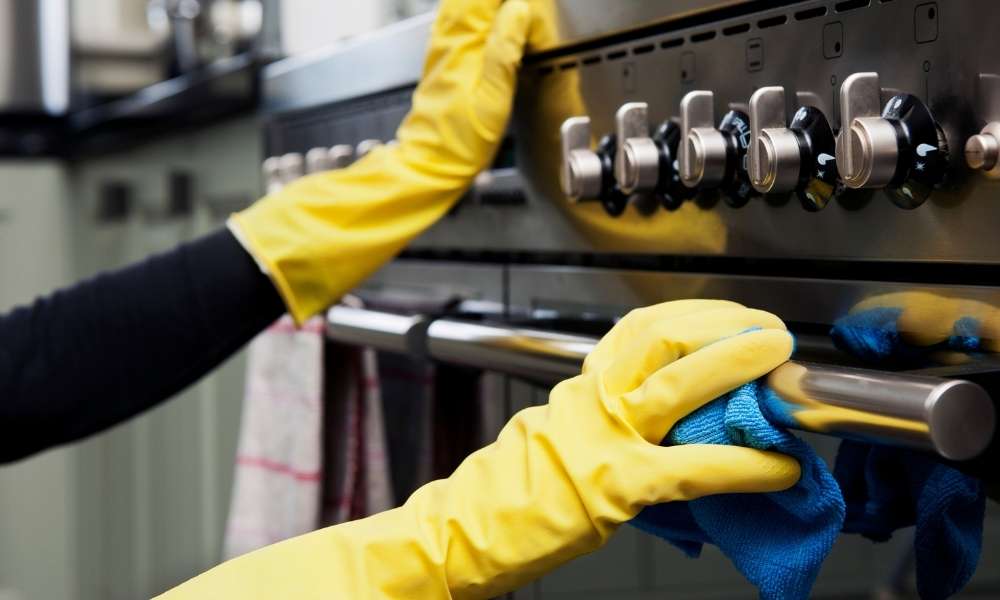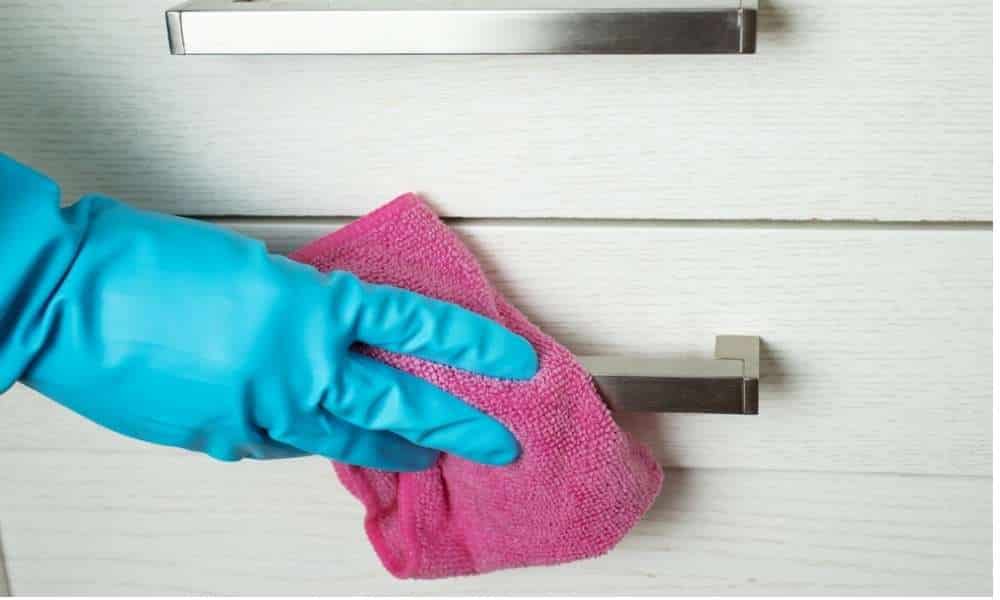Wasps can be an unwanted and hazardous pest when they choose to live in your backyard or around your property. Whether you’re throwing a BBQ, planting a garden, or just lounging around outside, wasps can quickly spoil your plans. Wasps are not only nuisances they can be violent and, though not necessarily deadly, stings cause great pain, swelling, and occasionally allergic responses. In this guide, We will explore easy methods on how to get rid of wasps Outdoor, ranging from natural remedies to professional pest control solutions.
Why Is Wasp Control Important?
The main reason for exterminating wasps outdoors is safety. Wasps, especially yellowjackets and hornets, get extremely aggressive when threatened. Whereas bees tend to perish, wasps can sting multiple times. They sting and can make some individuals allergic to the sting.
Though wasps are vital ecosystem partners for their ability to drive down pest insects, being close to humans poses challenges. Gardens, patios, and decks are all good places for wasps to nest.
Warnings You Have A Wasp Problem
- Wasp activity on the rise: If you’re seeing a lot of wasps flying in your backyard or around your food, there’s a nest nearby.
- Nesting grounds: Wasps typically construct nests in protected places like under eaves, in trees, and even within the walls of homes. If you spot nests in your backyard, watch for them.
- Harm: Only when they sense that their nest is under threat are they likely to become aggressive. When wasps are running after you or your pets, it’s almost certainly because you’re too close to the nest.
How to Eliminate Wasps Outside
There are several outdoor wasp eradication methods for eliminating wasps outdoors, from home remedies to professional insecticides. These are just some of the best ways.
.
01. Natural Methods for Wasp Control
For an eco-friendly alternative that’s not toxic, there are several natural ways to get rid of wasps outdoors. They’re safe for humans and pets, and a good place to start if you want to eliminate a wasp infestation without chemicals.
Essential Oils
Essential oils work well to repel wasps. They odor strongly, arousing and repelling wasps who use pheromones to find food and communicate. The best essential oils for outdoor wasp deterrents include:
- Peppermint oil: Wasps hate the strong minty smell Of peppermint oil. Spray 10-15 drops of peppermint oil into water and go over your yard or any places you’ve seen wasps.
- Eucalyptus oil: Eucalyptus oil smells like peppermint, Which is unpleasantly odorous For wasps. It is naturally insect-repellent As well.
- Citronella oil: Citronella oil is not only effective For mosquitoes, But it also keeps wasps At bay. Citronella is useful For candles and lawn sprays.
Soapy Water Spray
A soapy solution is a very natural and effective method of killing wasps that don’t require chemicals. The soap constricts the wasp’s lungs and suffocates them. Here’s how to make it:
- Add 2 tablespoons of dish soap to 1 liter of water.
- Put the mixture into a spray bottle.
- Spray directly onto the wasps and their nest. The wasps will quickly become immobilized.
DIY Wasp Traps
Homemade traps are another excellent way to eliminate wasps naturally. These traps lure the wasps to a container that holds them. How to build a basic wasp trap:
- Cut the top off a plastic bottle.
- Invert the top portion and insert it into the bottom portion to create a funnel shape.
- Fill the bottom with a mixture of sugar water or fruit juice, which will attract the wasps.
- Hang the trap near the area where wasps are active.
Chemical Methods for Wasp Control
Many prefer natural remedies, but sometimes a wasp infestation will require stronger action. If the wasps’ nests are large or hard to access, they might need pesticides. Use pesticides according to the manufacturer’s instructions and use them safely.
Wasp-Specific Pesticides
Wasp pesticides are meant specifically to kill wasps. They usually come in aerosol cans, which you can use to spray right into the nest from a distance. Some popular options include:
- Hornet and wasp sprays: These sprays are meant to be fired from a few feet away, so they work great on nests that are high up or hidden in trees.
- Powdered insecticides: You can put powdered poisons right on the nest, and wasps will bring them back to their hive. This method might be able to get rid of the whole nest.
Using Professional Pest Control Services
You should consult professionals. Wasp extermination services have the experience, equipment, and safety measures to remove nests successfully and safely. Professional pest control technicians can also provide wasp nest prevention advice, which can help keep your yard wasp-free for longer.
How to Prevent Wasps from Nesting in Your Yard
Once you have rid yourself of the wasps, you need to act quickly to prevent future invasions. Wasp nest prevention guidelines:
Seal Entry Points
Wasps tend to create nests in shady places like attics, sheds, and roof eaves. Cover cracks or holes in your house’s outside, particularly around windows, vents, and eaves. It will make it harder for wasps to locate nesting areas.
Remove Old Nests
After you’ve removed an active nest, it’s a good idea to remove any abandoned nests around your property. Wasps may reuse old nests the following season, so getting rid of them early can help prevent a return.
Keep Food and Sweet Drinks Covered
Wasps like junk food and drinks with a lot of sugar. Always cover your outdoor food and drink when eating or entertaining in your yard. Cleaning up food spills and keeping trash bins sealed tightly will also help reduce the attraction of wasps.
Plant Wasp-Repellent Plants
Some plants are natural wasp repellents, including:
- Eucalyptus
- Mint
- Wormwood
- Cucumber
Planting these in your garden can help deter wasps from building nests nearby.
What to Do If Stung by a Wasp
You or a loved one may still get stung by a wasp, no matter how careful you were. What you should do is
- Wash the sting with soap And water To clean any dirt Or debris.
- Use cold compress To help reduce swelling And pain.
- Administer yourself an antihistamine if the sting Site Is swelling Or bleeding.
- Call emergency medical care if you have a serious allergic reaction, For example, Breathing difficulty, Chest swelling, or fainting.
Most wasp stings are not dangerous, but it’s always important to be prepared, especially if you or someone in your household is allergic to wasp venom.
Conclusion
You don’t have to stress about dealing with wasps outdoors. Natural wasp control methods are there, from essential oils and DIY traps to traditional methods, such as wasp pesticides. You can have your outside space without wasps by detecting a wasp infestation early on, following preventative tips, and knowing how to eliminate nests properly.
How can I spot a wasp nest early?
Search for flocks of wasps coming and going from one place, typically on the roof or under trees or sheds. The earlier they are caught, the less serious the infestation will be.
Is it safe to remove a wasp nest myself?
You can try to remove the nest if it is small and easy to access, but be careful. Dress warmly and go at dawn or dusk when wasps are not in full bloom. For big nests, hire a professional.
Can I use homemade remedies to repel wasps?
Absolutely! Hang cucumber slices, spritz garlic water, or spray peppermint oil into a spray bottle to keep wasps at bay without harming nature.
How do I treat a wasp sting?
First, wash the stinger with soap and water. Make sure to apply a cold compress to lessen swelling and take antihistamines if needed. Check for severe reactions such as trouble breathing and contact the doctor if symptoms worsen.
How can I stop wasps from coming back next year?
Cover cracks in your walls, take out dead nests and clean up around your house. Also, placing decoy nests at important points can keep wasps from setting up new colonies.





